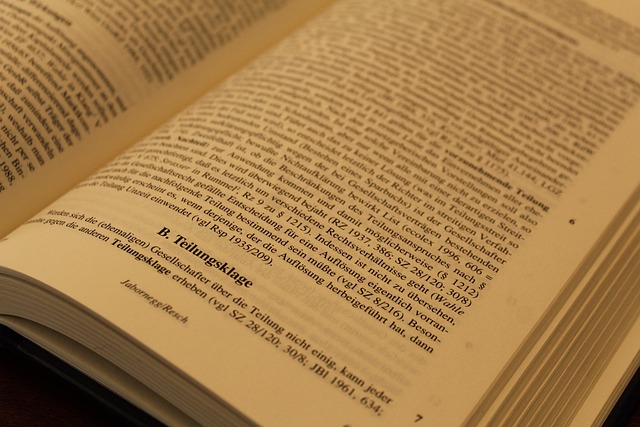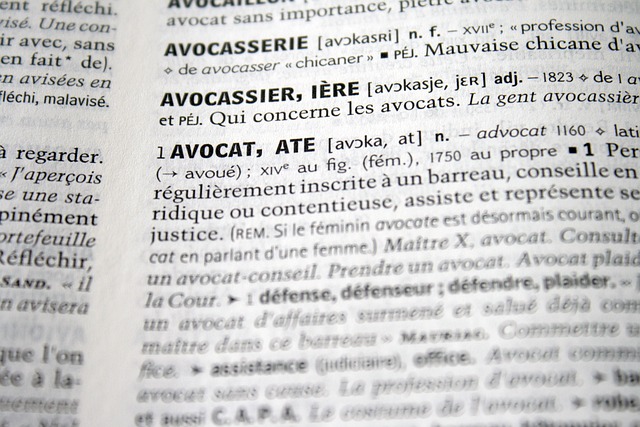Probate legal battles involve complex wills, asset disputes, and navigating state laws. Skilled attorneys offer crucial asset distribution guidance, interpret documents, and advocate for clients' rights. They facilitate negotiations or court cases, ensuring fair asset division according to the deceased's wishes. Choosing the right legal advocate with expertise in estate law and asset distribution guidance is key to a successful probate process, as seen in real-world cases where effective representation resolved intricate inheritance issues.
In the intricate world of probate law, legal battles can be complex and challenging. Understanding these disputes is crucial for ensuring a smooth transition of assets as per an individual’s will. This article delves into the significance of legal representation in navigating estate conflicts, focusing on asset distribution guidance. We explore strategies for successful litigation, qualities to consider when choosing a lawyer, and present real-world case studies, offering valuable insights into the realm of probate legal battles and the role advocates play.
- Understanding Probate Legal Battles: The Complexities and Challenges
- The Role of Legal Representation in Navigating Estate Disputes
- Asset Distribution: How Lawyers Guide Clients Through the Process
- Uncovering Strategies for Successful Probate Litigation
- Choosing the Right Legal Advocate: Key Qualities to Consider
- Case Studies: Real-World Examples of Effective Probate Legal Representation
Understanding Probate Legal Battles: The Complexities and Challenges

Probate legal battles are intricate and complex affairs, often shrouded in legal jargon that can be confusing for many. At their core, these battles revolve around the distribution of assets as per the deceased person’s will or, if there is none, according to state laws of intestacy. The process involves navigating a labyrinthine web of legal procedures, documentation, and potential disputes among beneficiaries. Each party involved—executors, heirs, creditors, and even the government—has specific rights and responsibilities that must be strictly adhered to.
Challenges in these cases include deciphering complex wills, contesting validity, and resolving disputes over asset distribution guidance. Executors bear the burden of ensuring all legal formalities are correctly followed while managing potential conflicts of interest. Beneficiaries, on the other hand, often have high expectations based on the will’s provisions, which can lead to intense negotiations or litigation if not resolved amicably. Understanding these complexities is paramount in ensuring a smooth probate process and achieving asset distribution guidance that reflects the deceased person’s wishes as closely as possible.
The Role of Legal Representation in Navigating Estate Disputes

When it comes to estate disputes, especially in probate legal battles, having robust legal representation is indispensable. Estate litigation can be a complex and intricate process, often involving contentious issues such as will validity, asset distribution guidance, and beneficiaries’ rights. A skilled attorney specialized in this field provides invaluable support to clients navigating these challenging waters. They offer expert interpretation of legal documents, ensuring every clause is understood and considered.
Moreover, legal representation enables effective communication with opposing parties, facilitating negotiations or, when necessary, aggressively advocating for the client’s interests in court. This guidance is crucial in minimizing conflicts, protecting personal assets, and ensuring a fair distribution as per the deceased’s wishes, as outlined in their will.
Asset Distribution: How Lawyers Guide Clients Through the Process

In probate legal battles, one of the most critical aspects is ensuring fair and accurate asset distribution. Here, legal representation plays a pivotal role in guiding clients through this complex process. Skilled attorneys provide invaluable asset distribution guidance, assisting individuals or estates in navigating the legal framework to achieve a just outcome. They help in identifying and valuing all assets, including real estate, financial accounts, and personal belongings, ensuring nothing is overlooked during the division.
Lawyers also educate clients on relevant laws and tax implications, crucial for maintaining transparency and minimizing potential disputes. By offering asset distribution guidance, they facilitate open communication between family members or beneficiaries, promoting understanding and agreement on the final asset allocation. This proactive approach not only simplifies a potentially contentious situation but also safeguards the legal rights of all involved parties.
Uncovering Strategies for Successful Probate Litigation

In probate litigation, success hinges on meticulous planning and strategic execution. Attorneys play a pivotal role in guiding clients through complex legal landscapes, ensuring fair asset distribution as per the deceased’s wishes. Uncovering key evidence is paramount; this includes will documents, financial statements, and any relevant correspondence that sheds light on the testator’s intentions. A thorough understanding of estate law is essential to navigate the intricacies of probate proceedings.
Effective strategies involve meticulous case preparation, where every detail is scrutinized. This may include challenging the validity of a will, contesting beneficiary designations, or seeking asset protection. Skilled legal representation provides invaluable asset distribution guidance, ensuring that the interests of all involved parties are protected and that the deceased’s estate is managed in accordance with legal requirements and personal wishes.
Choosing the Right Legal Advocate: Key Qualities to Consider

When facing a probate legal battle, selecting the ideal legal advocate is paramount for securing a favorable outcome. Look for an attorney who possesses a deep understanding of estate law and has extensive experience in handling complex cases. Expertise in asset distribution guidance is crucial, as they should be adept at navigating the intricate processes involved in equitably dividing assets among beneficiaries.
Beyond technical proficiency, consider advocates with exceptional communication skills and a client-centric approach. They should actively listen to your concerns, explain legal concepts in plain language, and keep you informed throughout the process. A strong track record of successful probate cases is also indicative of their capability to advocate for your best interests.
Case Studies: Real-World Examples of Effective Probate Legal Representation

In the realm of probate legal battles, real-world case studies offer invaluable insights into the effectiveness of legal representation. Consider a recent instance where a client faced complex asset distribution issues following the passing of their parent. The decedent’s estate included both liquid assets and substantial real estate holdings across multiple states, creating a labyrinthine web of legal and tax considerations. A skilled probate attorney provided essential asset distribution guidance, navigating through intricate estate planning documents and ensuring compliance with varying state laws. Through diligent research and strategic negotiation, they were able to secure a favorable outcome, maximizing the client’s share of the estate while minimizing potential liabilities.
Another compelling case involves a dispute among siblings over the inheritance of their late mother’s estate. The family dynamic was fraught with tension, making open communication challenging. The probate lawyer played a crucial role in mediating conversations and guiding the clients through the legal process. By presenting clear explanations of inheritance laws and potential consequences, they fostered understanding and encouraged resolution without escalating the conflict. This proactive approach led to a mutually agreeable distribution of assets, demonstrating the profound impact effective legal representation can have on even the most delicate probate matters.
